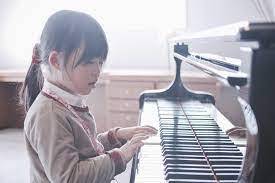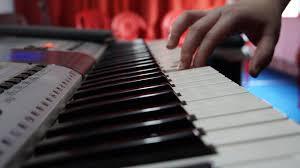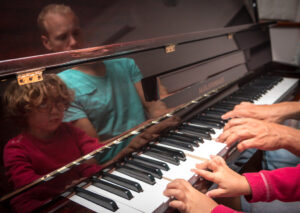How Much Do Piano Teachers Charge Per Hour in Singapore?
Introduction to Piano Education in Singapore
Singapore’s emphasis on a well-rounded education has led to a flourishing arts scene, with music education being a significant component. Piano lessons, in particular, are highly sought after. The reasons for this popularity range from the instrument’s versatility and the cognitive benefits of learning music, to the cultural prestige associated with piano proficiency. Consequently, the demand for qualified piano teachers is high, affecting the pricing of piano lessons.
Click Here to Request a Piano teacher On WhatsApp
How Much Do Piano Teachers Charge Per Hour in Singapore?
Factors Influencing Piano Lesson Rates
A. Teacher’s Qualifications and Experience
The most significant factor in determining lesson rates is the teacher’s qualifications and experience. Teachers with advanced degrees in music or those who have achieved high levels of certification from recognized music institutions generally command higher fees. Additionally, experienced teachers who have a proven track record of nurturing successful students may also charge more for their expertise.
B. Lesson Location and Format
The location where lessons are conducted can influence the cost. Teachers who provide lessons in well-established music schools or institutions often charge higher rates due to overhead costs. Conversely, private lessons conducted at the student’s home might include additional charges to cover the teacher’s transportation expenses. The format of the lesson (individual vs. group) also plays a role, with individual lessons being more costly due to personalized attention.
C. Lesson Duration and Frequency
Typically, piano lessons last between 30 minutes to an hour, depending on the student’s age and level of proficiency. Longer sessions or more frequent lessons per week will naturally incur higher total costs, although some teachers offer discounted rates for extended or multiple sessions.
D. Teaching Materials and Examination Fees
The cost of books, sheet music, and other teaching materials may either be included in the lesson fees or charged separately. Additionally, students pursuing graded examinations through recognized boards like the Associated Board of the Royal Schools of Music (ABRSM) or Trinity College London will need to budget for examination fees, which are separate from the lesson charges.
Click Here to Request a Piano teacher On WhatsApp
Average Hourly Rates for Piano Lessons in Singapore
While rates can vary widely based on the factors mentioned, general market trends can be identified. For beginner students, hourly rates can range from SGD $30 to $50 for less experienced teachers or those without formal music education.
Mid-range prices for more qualified or experienced instructors usually fall between SGD $50 and $80 per hour.
For highly qualified teachers, such as those with advanced degrees or significant performance experience, rates can exceed SGD $100 per hour.
Navigating the Market: Tips for Students and Parents
A. Assessing Teacher Qualifications
When selecting a teacher, it’s essential to consider qualifications beyond just the hourly rate. A teacher’s educational background, teaching philosophy, and rapport with students can significantly impact the learning experience.
B. Understanding Lesson Packages
Some teachers or music schools offer lesson packages that bundle several lessons at a discounted rate. These packages can provide savings over time but require upfront commitment.
C. Considering Group Lessons
For beginners or young learners, group lessons can be a cost-effective way to introduce them to piano basics before transitioning to more expensive individual lessons.
D. Planning for Additional Costs
Budgeting for the total cost of piano education should include not just the lesson fees but also the cost of instruments, maintenance, teaching materials, and examination fees.
Click Here to Request a Piano teacher On WhatsApp
The Impact of Digital and Online Learning Platforms
The advent of digital and online learning platforms has introduced a new dimension to music education, potentially affecting the traditional pricing models of piano lessons in Singapore. These platforms offer a range of options, from video tutorials and interactive lessons to live online classes with instructors from around the world. This digital shift can provide more affordable and flexible learning opportunities, but it also raises questions about the comparative effectiveness of online versus in-person lessons.
A. Online Lessons vs. In-Person Lessons
Online lessons can sometimes be more affordable than in-person sessions due to the elimination of travel costs and the ability to connect with teachers in regions with lower living costs. However, the effectiveness of online lessons can vary based on the student’s learning style, the quality of the digital platform, and the ability of the teacher to engage students through a screen. In-person lessons, on the other hand, offer the advantage of direct interaction, allowing teachers to provide immediate feedback and hands-on guidance, which is particularly crucial for beginners learning proper techniques and posture.
B. Hybrid Learning Models
Some music educators and institutions are adopting hybrid models that combine the best of both worlds. For example, a student might attend in-person lessons for technical training and use online resources for theory and practice. This approach can optimize learning outcomes while potentially reducing the overall cost of education.
The Broader Benefits of Music Education
When considering the cost of piano lessons, it’s important to recognize the broader benefits of music education. Studies have shown that learning an instrument can improve cognitive abilities, enhance memory, and develop discipline and time management skills. Furthermore, music education fosters emotional expression and cultural appreciation, contributing to a well-rounded personality.
A. Long-Term Investment in Personal Growth
Investing in piano lessons is not merely a financial decision but an investment in personal growth and lifelong learning. The skills and discipline acquired through music education can have far-reaching benefits, influencing academic performance and personal development.
B. The Cultural and Social Impact
Beyond individual benefits, music education plays a vital role in enriching the cultural landscape of Singapore. Encouraging a vibrant music community promotes cultural diversity, unity, and social cohesion, contributing to the overall quality of life.
Click Here to Request a Piano teacher On WhatsApp
Conclusion On How Much Do Piano Teachers Charge Per Hour in Singapore?
In conclusion, the cost of piano lessons in Singapore is influenced by a complex interplay of factors, including the qualifications and experience of the teacher, the lesson format, and additional expenses related to materials and examinations. With the evolution of digital learning, students now have more options than ever, each with its own set of advantages and considerations.
For those interested in pursuing piano education, it’s crucial to look beyond the hourly rates and consider the overall value and benefits of music learning. By exploring scholarships, community programs, and hybrid learning models, students can find pathways that align with their financial situations and learning preferences.
Ultimately, the pursuit of piano education in Singapore is an investment in oneself—a journey that fosters personal growth, enhances cognitive and emotional skills, and contributes to the cultural richness of society. By making informed decisions and exploring the diverse options available, students and parents can navigate the landscape of piano education to find the most rewarding and sustainable path forward.
Click Here to Request a Piano teacher On WhatsApp
How Much Do Piano Teachers Charge Per Hour in Singapore? by Tuition Domain




